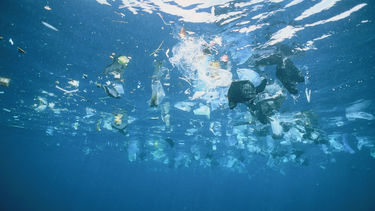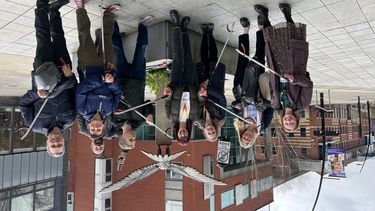1. Developing Sustainable Alternatives
University researchers are pioneering the development of low-energy bioplastics. Unlike traditional plastics derived from fossil fuels, these bioplastics are made from plant sources like corn and sugarcane. Created by Floreon, a spinoff company from the University, these high-performance bioplastics boast qualities comparable to ABS plastic commonly used in electronics and toys. This innovation offers a promising, eco-friendly alternative for various industries.
2. Making Sure Alternatives Are Better for the Environment
University of ∫˘¬´”∞“µ researchers have revealed that plastic products can sometimes generate lower greenhouse gas emissions compared to non-plastic alternatives. This is due to factors such as lower energy consumption during plastic production and the lightweight nature of plastic materials. The study emphasises that the most effective strategies for reducing plastic‚Äôs environmental impact lie in optimising use, extending product lifespans and improving waste collection systems. In some situations, we need to stop demonising plastics.
3. Pushing for Policy Change
University experts, like Professor Rachael Rothman, are vocal advocates for a national strategy tackling plastic waste. They call for a ban on exporting plastic waste, urging the government to prioritise reducing plastic use, increasing reuse, and bolstering recycling initiatives. Professor Rothman emphasises the urgency of addressing this issue, highlighting the staggering amount of plastic waste already accumulated globally.
4. Cutting Plastic with Milk Churns
University cafes have adopted a clever solution to eliminate plastic waste – refillable milk churns. Partnering with a local dairy farm, Our Cow Molly, the University replaced single-use plastic bottles with stainless steel churns. This not only eliminates over 87,000 plastic bottles annually but also reduces carbon emissions associated with milk delivery, even when cleaning of the churns is taken into account.
5. Zero Waste Shop
The ∫˘¬´”∞“µ Students' Union's innovative Zero Waste Shop empowers students and staff to embrace sustainable living. This shop offers a wide variety of unpackaged food items, ranging from basic staples like rice and pasta to various herbs and spices. It also promotes reusable products, allowing customers to purchase reusable coffee cups, refill their washing up liquid containers, and even enjoy a vegan pick-and-mix selection. The Zero Waste Shop tackles plastic waste reduction head-on, while simultaneously promoting responsible food consumption.
6. Vytal Reusable Containers
The University cafes have partnered with the Vytal reusable container scheme. This program allows staff and students to purchase food and drinks in reusable containers. Using the free Vytal app, participants simply scan a QR code to borrow a container for two weeks. This initiative not only reduces single-use plastic waste on campus but also encourages sustainable consumer behaviour by offering participants discounted food and drinks when they choose reusable containers.
7. Comprehensive Recycling Schemes
Recognising the significant amount of waste generated on campus, the University has implemented a robust recycling program encompassing various materials. This program includes designated bins for batteries, books, catering equipment, lab equipment and coats, mixed recycling, various plastics, mobile phones, electrical equipment, and more. By facilitating proper waste segregation and recycling, the University ensures a more sustainable waste management system.
8. Encouraging Reusable Packaging
The University is actively involved in the BUDDIE-PACK project, a collaborative effort with European partners. This project delves into the practicality of implementing reusable plastic packaging solutions on a larger scale. By analysing consumer behaviour and identifying convenient, reusable options, BUDDIE-PACK aims to significantly reduce reliance on single-use plastics.
9. Helping Staff and Students Remove Plastic from the Local Environment
The University makes it easy for staff and students to get involved and organise litter picks on campus and beyond! Earlier this month several teams came together for the Big Spring Clean resulting in over 20 bags of litter being collected in the space of one week. Furthermore, the University Green impact teams consistently organise litter picks, involving their student assistants in doing so.


